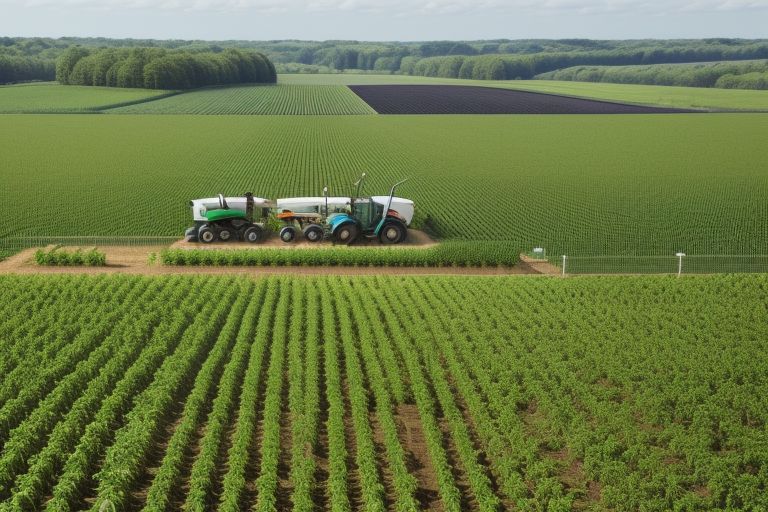As the global population continues to grow and climate change poses increasing challenges to traditional farming methods, the agricultural sector is turning to technology for solutions. One of the most promising developments in this area is AI-powered agriculture, which offers smart farming solutions designed to enhance efficiency and sustainability in food production.
The Rise of Smart Farming
Smart farming, also known as precision agriculture, utilizes advanced technologies like AI, machine learning, and data analytics to optimize the management of resources such as water, fertilizer, and seeds. By deploying sensors and drones, farmers can now monitor crop health, soil conditions, and water levels with unprecedented precision. This data is then processed using AI algorithms to make informed decisions that maximize yield while minimizing environmental impact.
Technological Innovations Driving Change
AI-powered tools are at the forefront of agricultural innovation, providing several key benefits:
- Predictive Analytics: AI systems analyze weather data and crop patterns to predict agricultural outcomes. This allows farmers to plan more effectively and reduce the risk of crop failure.
- Automated Operations: From planting to harvesting, AI-driven robots and drones are being used to automate labor-intensive processes, reducing the need for human labor and enhancing precision.
- Resource Optimization: AI helps in the precise application of water, fertilizers, and pesticides, which not only cuts costs but also reduces the ecological footprint of farming operations.
Case Studies: Success Stories of AI in Agriculture
Several successful implementations of AI in agriculture highlight its potential:
- Disease Detection: AI algorithms have been used to detect plant diseases early, enabling farmers to take immediate action to prevent widespread crop damage.
- Yield Optimization: In Japan, AI-powered systems have been employed to analyze data from sensors and satellites to predict the best planting strategies and improve rice yields by as much as 15%.
- Livestock Management: Farms are using AI to monitor the health and productivity of livestock, with systems designed to predict and enhance milk production in dairy farms.
Environmental Impact and Sustainability
One of the most significant advantages of AI-powered agriculture is its potential to contribute to environmental sustainability. By enabling more precise use of resources, AI reduces waste and decreases the amount of chemicals that enter ecosystems. Moreover, by optimizing crop rotations and monitoring soil health, AI can help maintain the long-term productivity of farmland.
Challenges and Considerations
While AI offers transformative possibilities for agriculture, there are challenges to its widespread adoption:
- High Initial Investment: The cost of advanced AI technologies can be prohibitive for small to medium-sized farms.
- Data Privacy and Security: Collecting and storing large amounts of agricultural data raises concerns about privacy and data security.
- Skill Gap: There is a significant learning curve associated with implementing and maintaining AI systems, requiring new skills and training for farm workers.
The Future of AI in Agriculture
The future of AI in agriculture looks promising, with ongoing innovations likely to further enhance its efficiency and sustainability. The integration of AI with other technologies like blockchain for supply chain management and IoT for enhanced connectivity is expected to drive the next wave of agricultural revolution.
AI-powered agriculture represents a pivotal shift in how food is produced, offering smarter, more sustainable solutions to meet the world’s growing food needs. As technology continues to evolve, the potential for AI to transform agriculture into a more productive, sustainable, and environmentally friendly industry is immense. By embracing these technologies, the agricultural sector can ensure it meets future demands while preserving the planet for generations to come.























+ There are no comments
Add yours